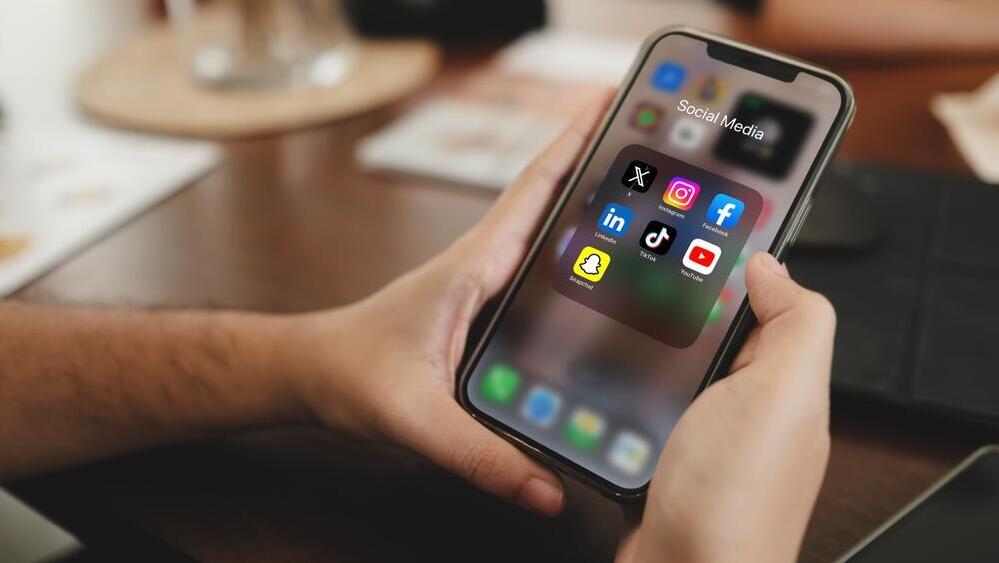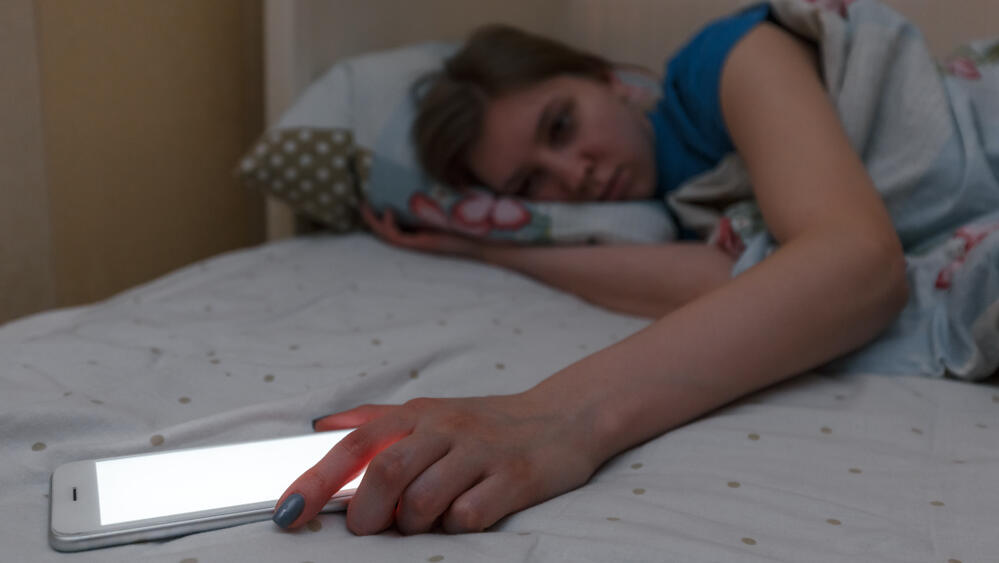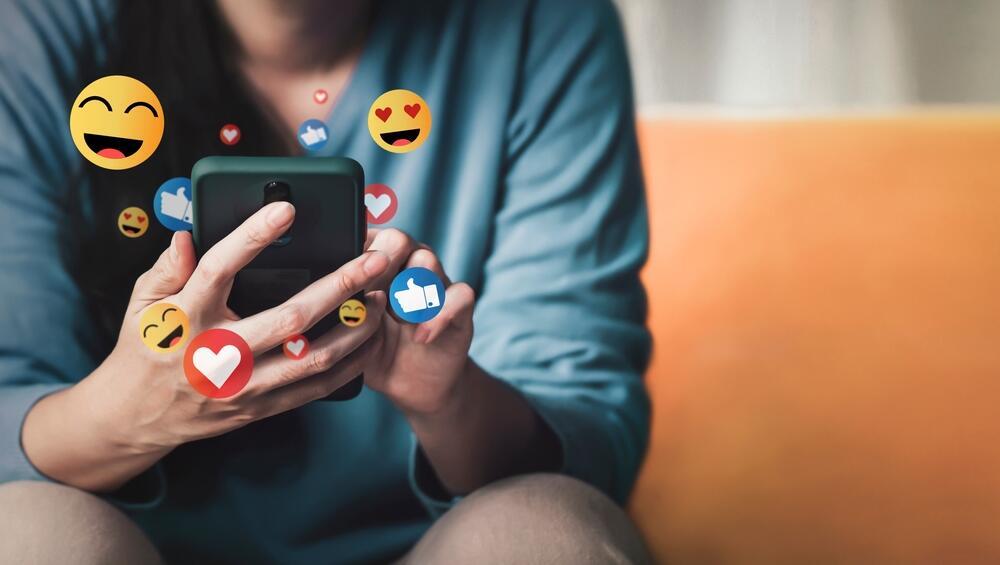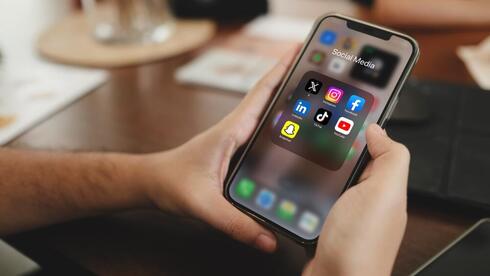We all know the routine: hopping from one Instagram story to another, one more TikTok scroll, just a quick check of the feed, and suddenly an hour is gone. Even people who are convinced their phone does not run their lives admit they struggle to stop. But what really happens if you shut off social media for just one week? A new, wide-ranging study suggests the change comes faster than most people think, and it shows up in the most sensitive corners of mental health.
3 View gallery


One week without social media could make all the difference
(Photo: Shutterstock)
A major study published recently in JAMA Network Open, one of the world’s leading medical journals, found that young adults who stopped using social media for only one week saw significant declines in symptoms of anxiety, depression and insomnia. Despite the remarkably short break, the results were clear. Depression dropped by nearly 25 percent, anxiety by about 16 percent and sleep problems by roughly 14.5 percent. The effect was strongest among participants who entered the study with higher levels of psychological distress.
Dr. Sharon Pelagi, national psychologist for Maccabi Healthcare Services, said the findings align with clinical and research knowledge accumulated in recent years. Social networks are “here to stay,” she said, and they shape young people’s lives and the way they experience the world.
“The problem starts mainly when content consumption on social networks is passive, scrolling, watching others and constantly comparing yourself to other people’s lives,” Pelagi said. “When we only observe other people’s lives without creating or acting ourselves, the risk rises for harm to self-image and body image, and for anxiety and depression to appear. It is an experience built on comparison.” She added that online bullying is also a significant part of the problem, and its effects extend beyond teens. Studies show they are evident among young adults as well.
The U.S. study, conducted between March 2024 and March 2025, followed 373 young adults ages 18 to 24, most of them students. For two weeks, researchers tracked their phone behavior, including screen time, app openings, number of notifications, sleep hours, movement and communication. After that, 295 participants, about 79 percent, chose voluntarily to do a one-week detox without Facebook, Instagram, TikTok, Snapchat and X, formerly Twitter.
3 View gallery


Using the phone before bed
(Photo: Shutterstock)
Participants completed short daily questionnaires about mood and symptoms such as anxiety, depression and sleep difficulties. At the same time, their phones provided objective data on actual use rather than self-reported estimates. That detail mattered, the researchers noted, because many recent meta-analyses show that people’s own reports of screen time are often inaccurate and do not reflect real behavior.
Although it is common to assume that more time online automatically harms mental health, the study found that time itself is not necessarily the problem. Instead, unhealthy use patterns, such as negative comparison to others, seeking outside approval or feeling addicted, were far more strongly linked to depression, anxiety and insomnia. In other words, it was not how many hours participants scrolled, but whether they felt compelled to do it or came away feeling lacking, jealous or self-critical.
Not all apps were equally easy to abandon. Participants nearly stopped using Facebook and X, but had a much harder time staying away from Instagram, TikTok and Snapchat. Fast, visual video apps were the ones that kept people glued to screens. Even with some lapses, the overall results remained decisive.
When researchers divided participants by their baseline depression severity, those with moderate to severe symptoms showed the biggest improvement, including sharp drops in anxiety and sleep problems. Feelings of loneliness did not change. Researchers suggested that social networks may fill a basic need for connection, so a total short-term break may not reduce loneliness.
Pelagi stressed that even as more influencers and content creators speak openly about emotional struggles, passively consuming that content still does not create real connection. She said that without active human relationships or real-life experience, even positive digital content can deepen anxiety or loneliness. “When we are not activating ourselves, not thinking, not creating, not communicating, even the most positive content can turn into something that increases anxiety or loneliness,” she said.
She added that part of social media’s impact comes from the lack of physical and mental activity while scrolling. “When we are on the phone, there’s no movement, no engagement, no presence. You can lie in bed all day, scroll nonstop and feel connected to the world, but in practice the body and mind experience nothing.” Activities that build psychological control, such as talking with someone, going outside, exercising or engaging in real experiences, disappear during passive digital use.
3 View gallery


Pelagi pointed to romantic relationships as a striking example. In the past, a breakup meant real separation. Today, people keep following an ex, seeing what they are doing, who responds to them, and even imagining a “better life” the other person seems to be living. “People report how painful it is,” she said. “In therapy we teach them to identify when that behavior is harmful, when they need to stop, and how to develop regulation skills, even against an algorithm that knows exactly how to keep us there.”
She described the pattern as a kind of addiction. The goal is not only to reduce use but to recognize warning signs. What content creates pressure? How does it affect your mood? What happens in your body and thoughts while scrolling? “Once you learn to notice it, you can start regulating and choosing more consciously,” she said.
One surprising result was that during the detox week participants actually spent more time on their phones overall and stayed home more. Researchers believe habitual scrolling was replaced by other apps, and free time that was not used for real social activity remained in front of a screen.
That supports another conclusion, they said. The idea may not be to reduce phone use altogether, but to make it healthier by avoiding addictive patterns, constant comparison and compulsion.
 Dr. Sharon PelagiPhoto: Maccabi Healthcare Services
Dr. Sharon PelagiPhoto: Maccabi Healthcare Services
Researchers noted several limitations. There was no control group, making it difficult to say definitively that the improvements were caused only by the detox. The participants also did not represent the general population. Most were young women, students and iPhone users. The study did not test long-term effects, so it is unclear whether the improvements last after people return to social media.
Pelagi said parents must be active partners in change, not by criticizing but by setting an example. “We complain that kids are glued to the phone while we’re on our phones ourselves most of the day. Children learn first from what they see, not from what we tell them.” She said the unspoken message is especially strong during family time. “If during a game or a meal the phone is in your hand, the message is clear. This is time to be with the kids, not with the screen.”
As children get older, she added, guidance should shift into critical discussion and tools rather than bans. “Instead of saying, ‘Get off the phone,’ we need to talk with them about what they see there, how to think about it, how to identify what helps and what harms. This is an essential skill, and it should be taught as early as possible.”

